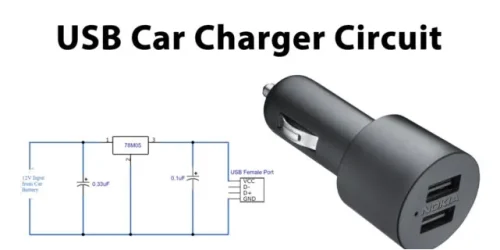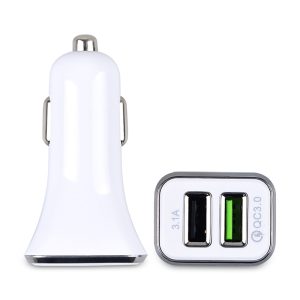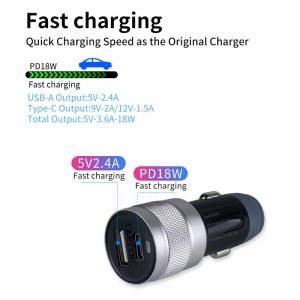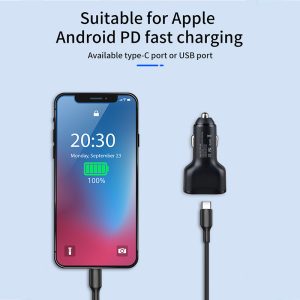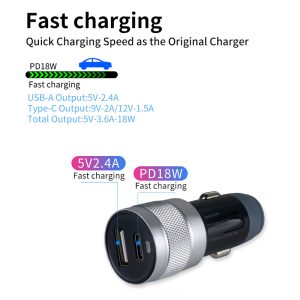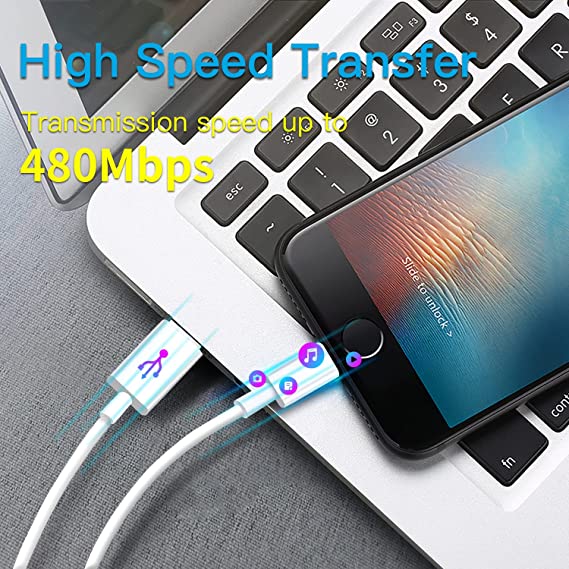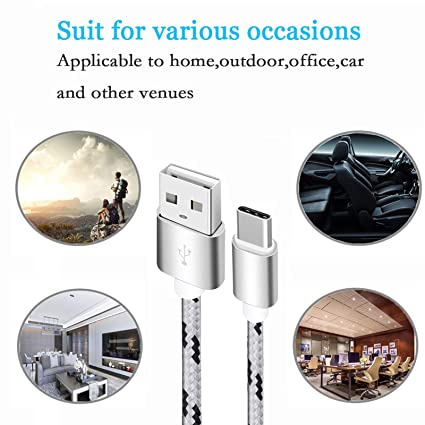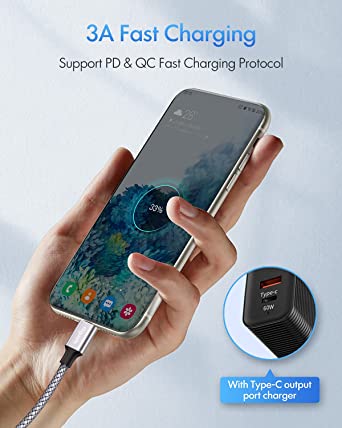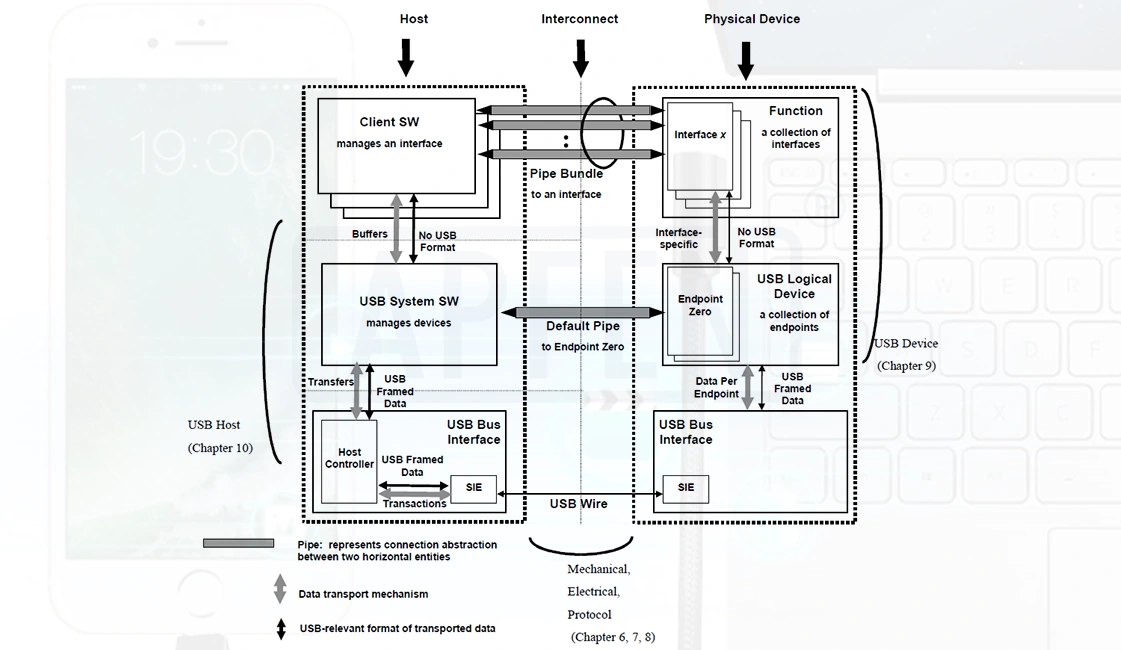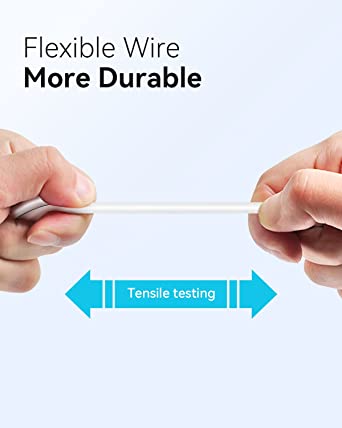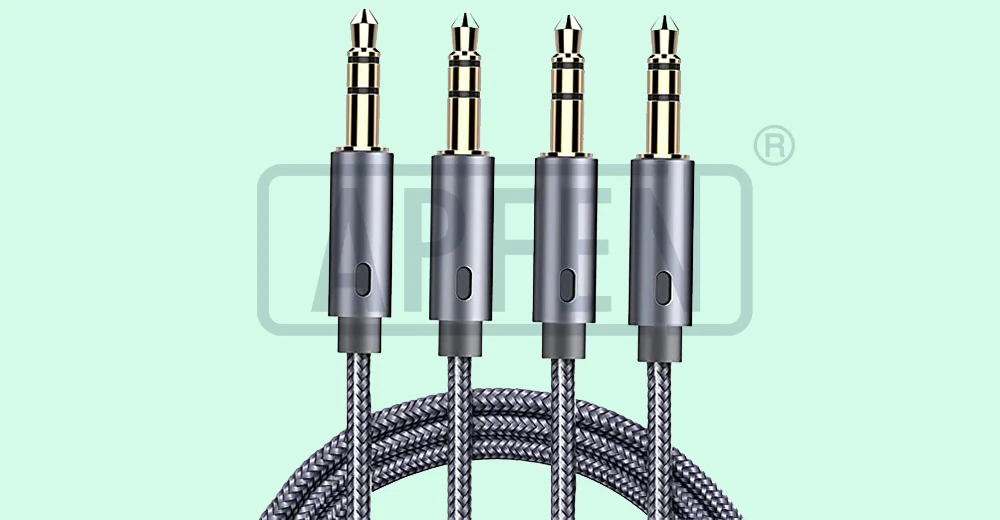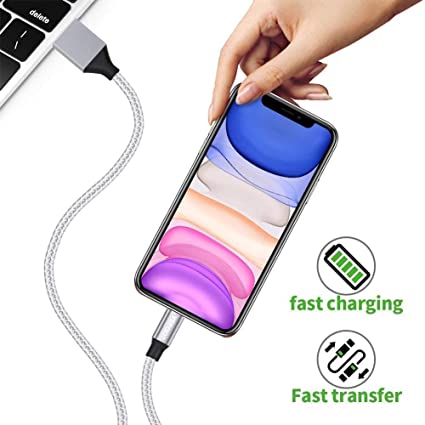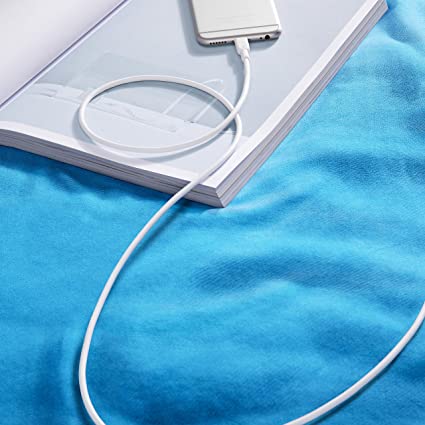Understand the Types and Functions of USB Car Chargers to Help Choose
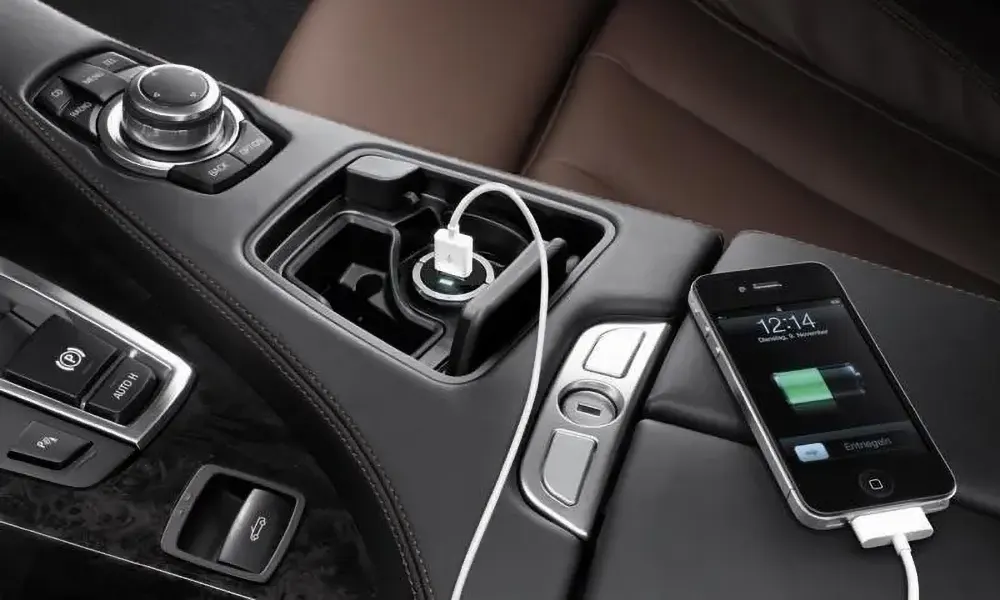
Imagine this, you’re going down the highway, enjoying the scenery, but your phone’s battery is about to die. Or imagine that you’re on a family road trip, and everyone’s tablets and game consoles are low-powered. The magic solution is a USB C charger in the car, and better if there is a multiport car charger.
This article is your guide to the wonderful world of USB-c charger for car and multi port car chargers. We’ll help you choose the perfect charger for your needs, whether you’re a tech-savvy driver, a busy professional, or a family who is always on the go.
We’ll explain the benefits of fast USB car chargers and show you how to install your car charger safely and easily. So, hop in, and let’s get started!
What is a USB Car Charger?
A car USB C charger is a small adaptor that plugs into the cigarette lighter/accessory port found on virtually all cars and provides one or more USB outputs. As the cigarette lighter/accessory port provides a nominal 12 volt output, the car USB charger converts this voltage to the 5 volts required for the USB supply. It takes advantage of USB’s versatility and is widely used in various charging interfaces. So, it will basically let your phone charge while driving.
Some car charger adapters can do more than just charge your devices. They can also connect to music players, including cell phones, and transmit an FM signal to your car radio, allowing you to listen to music or make hands-free phone calls. Car phone chargers are especially useful when using your smartphone as a GPS navigation device, as they tend to use a lot of battery power. A c type charger for cars can also keep the batteries of other devices, like tablets, charged during long car rides.
How Does a USB Car Charger Work?
A USB car charger is a handy device that allows you to charge your electronic gadgets, like smartphones and tablets, while you’re on the road. It works by converting the power from your car’s cigarette lighter socket into a USB-compatible voltage, making it a convenient way to keep your devices juiced up during long car rides or road trips. Before getting into how a USB car charger works, let’s take a closer look at each component of a car phone charger. There are 6 components of a car USB type c charger.
- Cigarette Lighter Socket: This is where you plug in the car charger. It’s usually located in the front of your car, near the dashboard.
- Voltage Regulator: This little guy inside the car charger usb does the important job of converting the 12-volt DC power from your car’s battery into the 5-volt DC power that most USB devices need.
- USB Ports: These are the ports where you connect your charging cables. Most car chargers have at least one USB port, but some have multiple ports so you can charge several devices at once.
- Charging Circuitry: This part of the car charger manages the charging process. It makes sure that your devices are charged safely and efficiently by monitoring the charging status and adjusting the charging current.
- Protection Mechanisms: USB car chargers often have built-in safety features to protect your devices from damage. These may include over-current protection, over-voltage protection, and short-circuit protection.
Working Principle of USB Car Charger.
Now, let’s see what is the working principle of USB car charger:
- When you plug the USB car charger into the cigarette lighter socket, it establishes an electrical connection with the car’s battery.
- The voltage regulator inside the car charger steps down the 12V DC voltage from the car’s battery to the 5V DC voltage required by USB devices.
- The regulated 5V DC voltage is then supplied to the USB ports, where you can connect your electronic devices using their respective charging cables.
- The charging circuitry in the car charger manages the charging process by monitoring the charging status and adjusting the charging current accordingly.
- The connected electronic device receives the 5V DC power from the car charger and charges its battery.
So, there you have it! With this straightforward working principle, your car charger with type c will start giving charging power to your phone. It is a simple yet effective tool that lets you keep your electronic devices powered up while you’re on the go. Above all with a USB type c charger car easy-to-use design and built-in safety features, it’s a must-have accessory for any road trip or long car ride.
What Types of Car Chargers Are There?
There are several types of car chargers available for charging phones. These chargers are designed to be used in a car’s cigarette lighter or USB port. Here are some common types of car chargers for charging phones:
- USB-A Car Chargers:
USB-A car chargers are the traditional choice for charging phones in cars. They feature a USB-A port, the standard USB port found in most electronic devices. These chargers are highly compatible with a wide range of smartphones, tablets, GPS devices, and other gadgets that can be charged via USB. They offer a standard charging speed, typically delivering power at a rate of 1 amp to 2.4 amps, depending on the charger’s specifications and the device being charged. USB-A car chargers are designed to charge one device at a time. - USB-C Car Chargers:
USB-C car chargers are becoming increasingly popular due to the rising adoption of USB-C charging in smartphones and other devices. These chargers feature a USB-C port, which offers faster charging speeds compared to USB-A chargers. USB-C chargers can charge multiple devices simultaneously if they have multiple ports. They deliver power at a higher rate, typically supporting charging speeds of 18 watts (W) or higher, which enables quicker charging for compatible devices. - Wireless Car Chargers:
Wireless car chargers utilize wireless charging technology to charge phones without the need for cables. These chargers typically consist of a charging pad or mount that securely holds the phone and transfers power wirelessly. Wireless car chargers provide a clutter-free charging experience and are convenient for users who prefer a cable-free setup. They are compatible with smartphones that support Qi wireless charging, offering a convenient and efficient way to charge devices while on the move. - Quick Charge Car Chargers:
Quick Charge car chargers are designed to provide fast charging for compatible devices. They utilize Qualcomm’s Quick Charge technology to deliver higher power output, allowing devices to charge at a significantly faster rate than standard chargers. Quick Charge car chargers support various charging voltages and power levels, enabling rapid charging for compatible smartphones and other devices. These chargers are ideal for users seeking quick and efficient charging solutions during car journeys. - Lightning Port Car Chargers:
Lightning port car chargers are specifically designed for charging devices with Lightning ports, such as iPhones, iPads, and iPods. These chargers feature a Lightning connector instead of the traditional USB-A or USB-C ports. They are compatible with Apple devices and provide efficient charging while on the go. Lightning port car chargers often offer fast charging capabilities and may include additional features such as smart charging technology or multiple ports to charge multiple devices simultaneously. - Multi-Port Car Chargers:
Multi-port car chargers feature multiple USB ports like USB A, USB C, lightning ports, allowing users to charge multiple devices simultaneously. They are practical for charging phones, tablets, GPS devices, and other gadgets concurrently, making them a convenient option for individuals with multiple devices or for car rides with passengers who need to charge their devices. Multi-port car chargers come in various configurations, offering two or more USB ports to accommodate different charging needs. They provide flexibility and versatility, enabling users to charge multiple devices efficiently while on the go.
What is a Dual Port Car Charger?
A Dual Port USB Car Charger saves you some of the unpleasantness which comes with long journeys by allowing you to charge two devices simultaneously. It allows you to charge two devices, such as smartphones, tablets, or other USB-powered devices, at the same time while you’re on the go in your car. This can be convenient for individuals or families who need to charge multiple devices during car journeys. The dual USB car charger typically plugs into the car’s cigarette lighter socket and converts the car’s power into USB power to charge the connected devices.
How Dual Port Car Chargers Work?
Dual port chargers have two ports you can use to charge your devices simultaneously. You simply plug the dual port car charger into your car or vehicle’s power socket to begin charging. This way both devices will charge up while you drive. It’s handy to have two charging slots so people can share or charge multiple things at once like a phone and GPS. The car USB dual charger gives power to both plugged-in devices so you don’t need separate chargers taking up two plugs. And that’s not all. With the advancement in technology, modern car charger manufacturers are going one step ahead. They not only offer dual ports but also facilitates integrating multiple ports into one car charger. This advancement offers even more convenience by allowing you to charge multiple devices simultaneously without the need for separate chargers taking up multiple plugs. So, whether you need to charge your phone, GPS, or other devices on the go, modern car chargers have all that you need.
What Are The Advantages Of Dual-Port/Multi-Port Car Chargers?
So, we already know that the dual ports are swift charging systems and will quickly charge your devices while traveling by car. Their dual ports offer fast charging for two devices at one time, making them time efficient. The charging of dual port car chargers is efficient. Let’s find out some more advantages of multi-port car chargers.
- Convenience:
One big plus of a dual port charger is how easy it makes charging your devices, especially when you’re on the move. With two ports, you can charge two gadgets at once, saving you from carrying around multiple chargers or waiting for one device to finish charging before you can plug in another. This is super handy for busy people or those with long drives, saving you time and hassle. - Charge Multiple Devices:
These chargers aren’t just for one device. They can handle multiple gadgets all at the same time. That means you can keep your phone, tablet, and whatever else juiced up without needing to hunt down extra outlets or charging spots. - Cost-effective:
Buying a dual-port charger can save you money in the long run. Instead of shelling out for multiple chargers, you only need one to power up all your devices. This is especially helpful if you’ve got a bunch of gadgets that need regular charging. - Flexibility and Time-Saving:
Most dual port chargers come with different types of ports, like USB-A, USB-C, or Lightning. That means you can charge a variety of devices all at once, which is great if you’ve got different gadgets with different charging needs. Plus, these chargers are small and easy to take with you, fitting snugly into your car’s cigarette lighter outlet and staying put. This is a real-time-saver, especially when you’re busy and need all your gadgets ready to go in a hurry. Safety:
Safety is a big deal when it comes to dual port chargers. They’re designed with features like overcharging and short circuit protection to keep your devices safe from power spikes or fluctuations in your car’s electrical system. That means you can charge up without worrying about damaging your gadgets while you’re driving.
Apphone dual port car charger goes the extra mile by being shockproof and super durable. Making it safe even for kids to use. Plus, it’s built to handle the vibrations of your car, so you won’t have to worry about it getting jostled around.
How to Choose a Dual-Port/Multi-Port Car Charger?
So, now you have all the information about multi port char chargers, and you want to buy one now? So which one should you select? When selecting a dual port car charger, it’s crucial to consider several key features to ensure you’re getting a reliable and efficient product.
- Power Output:
One of the most critical aspects to consider when choosing a dual port car charger with type c is its power output. The power output determines how quickly your devices will charge. Look for chargers with higher power output, measured in watts or amps, as they can charge your devices faster. Consider the power requirements of your devices. For example, smartphones typically require 5 volts, while tablets may need more power. Choose a charger with sufficient power output to meet the needs of your devices simultaneously. Some chargers feature smart technology that automatically detects and delivers the optimal charging speed for each connected device, ensuring efficient charging without overloading or damaging your gadgets. - Build Quality:
The build quality of the charger is essential for durability and longevity. Look for chargers constructed from high-quality materials such as sturdy plastic or aluminum alloy, which can withstand daily use and resist wear and tear. Check for features like reinforced connectors and robust housing to ensure the charger can withstand the rigors of being used in a car environment, including bumps, vibrations, and temperature fluctuations. Opt for chargers from reputable brands like “APPHONE” known for their quality and reliability. Reading user reviews and feedback can also provide insight into the durability of a particular charger. - Safety Features:
Safety is paramount when it comes to charging your devices in your car. Look for chargers with built-in safety features that protect against overcharging, short circuits, overheating, and voltage spikes.
Features such as overcurrent protection, overvoltage protection, and temperature control can safeguard your devices from potential damage and ensure safe charging while driving. Certifications from recognized organizations indicate that the charger meets stringent safety standards and has undergone testing for reliability. - Design and Aesthetics:
While functionality is essential, the design and aesthetics of the charger can also enhance your overall user experience. Choose a portable car charger with a compact and sleek design that fits seamlessly into your car’s interior. Consider factors such as the size, shape, and placement of the charger. Look for models with a low-profile design that won’t obstruct other dashboard controls or take up unnecessary space.
Some portable car chargers come with additional features such as LED indicator lights, illuminated USB ports, or retractable cables, which can add convenience and style to your charging setup. Opt for chargers with a non-slip grip or anti-skid design to ensure they stay securely in place while driving, minimizing the risk of accidental disconnection. - Compatibility:
Ensure that the car charger is compatible with your vehicle’s power socket or cigarette lighter. Some chargers may have specific voltage requirements or compatibility limitations. Check the compatibility of the charger with your devices, including smartphones, tablets, GPS units, and other electronic gadgets. Look for car chargers that support a wide range of devices and charging protocols to ensure compatibility with your devices. - Price and Budget Considerations:
Set a budget for your car charger purchase and consider the price range of available options. Compare prices from different brands and retailers to find a charger that offers the best value for your budget.
Keep in mind that while price is important, it’s also essential to prioritize features, build quality, and safety when making your decision. - Brand Reputation:
Consider the reputation and reliability of the brand when choosing a car charger. Opt for well-known and reputable brands like “APPHONE” that are known for producing high-quality and reliable products. Research customer reviews and ratings to gauge the overall satisfaction and reliability of the brand’s car chargers.
So, while having all these key features in mind when choosing a dual port car charger, you can select a reliable and efficient device. With these factors in mind, you will definitely pick a charger that will meet your charging needs while ensuring the safety of your devices and your vehicle.
How to Use a Car USB Charger?
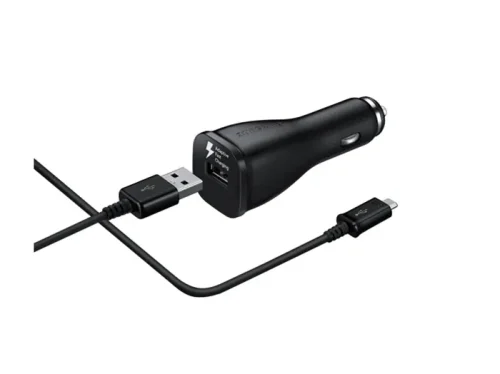
Using a car USB charger is a straightforward process, but it’s essential to follow some basic steps to ensure safe and efficient charging. To start, you will simply have to connect one end of the USB cable to your device (e.g., smartphone, tablet, power bank). Make sure the USB cable is securely plugged into your device’s charging port.
Once the USB charger is connected to both your device and the car, check if your device starts charging. Some devices may display a charging icon or indicator on the screen & that’s all. Your device must be charging now.
Remember, that the USB charger for the car should be compatible with your device. Check the specifications of the charger and your device to make sure they are compatible. If your device is not charging, try using a different USB cable or checking the connection between the cable and the device and the USB port in your car.
If you are using a wireless car charger then you should have some important things in your mind. When using wireless charging, first, ensure that your device is compatible with Qi wireless charging technology. Once confirmed, position your device correctly on the charging pad or mount, aligning it with any indicators. Monitor the charging progress, checking for indicators on your device’s screen or LED lights on the charger. Keep the charging area free from obstructions and ensure your device’s battery contacts are clean. Adjust the placement if needed to optimize charging efficiency. Additionally, monitor your device’s temperature to prevent overheating during charging. With these steps, you can effectively utilize wireless charging.
Does Using A USB In-Car Charger Damage Your Car's Battery?
Using a USB in-car charger does not necessarily damage your car battery. However, it is essential to be aware of the type of battery in your car and the charger’s voltage and current. Make sure the charger is rated for the voltage of your car’s battery. Most car batteries are 12 volts, but some luxury vehicles have 24-volt batteries. Using a charger not rated for the correct voltage could damage your battery.
On the type of batteries, there are two types, lead acid, and lithium-ion batteries. Lead-acid batteries are commonly used in cars, and they can be damaged by overcharging. USB in-car chargers typically have a voltage of 5 volts and a current of 2.4 amps. When charging a lead-acid battery with a USB in-car charger, the battery will charge faster than a standard car charger. However, this also means a greater risk of overcharging the battery. Overcharging a lead-acid battery can damage the battery cells and shorten the battery’s overall lifespan.
On the other hand, lithium-ion batteries are less likely to be damaged by overcharging than lead-acid batteries. When charging a lithium-ion battery with a USB in-car charger, the voltage will be lower than with a standard car charger. This reduced voltage means less risk of overcharging the battery; however, it also means the battery will take longer to charge.
To avoid damaging your car’s battery, it is recommended that you use a charger specifically designed for your car’s battery type and follow the manufacturer’s instructions for charging. It is also important to monitor the battery’s charge level to avoid overcharging.
Imagine this, you’re going down the highway, enjoying the scenery, but your phone’s battery is about to die. Or imagine that you’re on a family road trip, and everyone’s tablets and game consoles are low-powered. The magic solution is a USB C charger in the car, and better if there is a multiport car charger.
This article is your guide to the wonderful world of USB-c charger for car and multi port car chargers. We’ll help you choose the perfect charger for your needs, whether you’re a tech-savvy driver, a busy professional, or a family who is always on the go.
We’ll explain the benefits of fast USB car chargers and show you how to install your car charger safely and easily. So, hop in, and let’s get started!
Are USB car chargers safe?
Most USB in-car chargers have built-in safety features that protect your devices from overcharging, so you don’t have to worry about damaging your battery. However, there are a few points you should keep in mind when using a USB in-car charger: Make sure the charger is rated for the voltage of your car’s battery.
Why is my car USB charger so slow?
The higher the port’s amperage, the faster it’ll charge devices. The built-in car USB ports on most older models don’t produce enough power, so multitasking with your phone while charging will result in a slower charging process.
Can a USB car charger play music?
Of course, Having a USB port in your car allows you to charge your devices without a car charger adapter, and you can even plug in a USB flash drive for music if you like. But you can also plug your phone in to play music directly. If your vehicle has a USB port, using that is the best way to play audio to your car’s stereo.
Will the USB car charger drain the battery?
USB in-car chargers draw power from your car’s cigarette lighter socket. This means that they are not connected directly to your car’s battery and, as such, will not drain it as quickly. This can be especially important if you use power-hungry devices such as tablets or GPS units.
Are all USB car chargers the same?
Don’t buy the wrong car charger. Car chargers come with different standards that aren’t compatible with each other. The wrong USB-C car charger or cable can destroy your devices: Car chargers suffer from the same problems as regular chargers, which means a poorly designed charger can destroy your devices.
Is 12 volt fast charging?
However, the 12V cigarette lighter will always charge a phone faster as it comes with 12V compared to a conventional USB cord that offers 5V. A 5V USB cord will always deliver far less power than a 12V cigarette lighter for the same time.
Customizable Charging Solutions with APPHONE
Using a USB in-car charger can be a convenient way to charge your devices while on the go, but it’s essential to use it responsibly to avoid damaging your car’s battery. To ensure safe charging, always monitor the battery’s charge level and disconnect the charger when the battery is fully charged. Furthermore, if you need customized multi-port car chargers for wholesale purposes, consider partnering with APPHONE.
APPHONE offers a wide range of multi-port car chargers with various connector types, ensuring compatibility with diverse devices. So, our commitment to quality and safety ensures that your devices receive reliable and efficient charging.
In addition to our standard product offerings, we also support customization for wholesale orders. Whether you require specific connector types, charging protocols, or wattage, our team is always ready to assist you in creating a tailored charging solution that meets your unique needs.
By choosing APPHONE, you will get your hands on high-quality multi-port car chargers that specifically fit your specific business requirements. Contact us today to discuss your customization needs with our skilled team and experience the power of reliable charging on the way.
Share This Artcle:

Fast delivery
Fastest delivery within 22 days

Quick proofing
Fastest 3-day proofing cycle

After-sale protection
24-month long warranty

1V1Customer Service
Professional customer service follow-up

